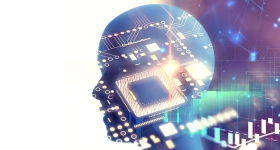
For many of us, AI and robotics can seem like technologies far removed from our own lives. When we do hear of them, it tends to be through news stories of scaremongering warnings or extraordinary new breakthroughs like the pioneering robotics venture studio Rewired, with the backing of tech entrepreneur Tej Kohli. Rewired and its ground-breaking projects might seem outside the reach of most of us, but far more AI-assisted technologies are currently in everyday use than you may realise – and there are more than a few that you could own for yourself.
Here, we explore some of the most sophisticated AI tools and products currently available for everyday use.
Smart Homes and Robot Assistants
One of the AI trends that observers have been predicting for a long time now is the advent of smart homes, and with the development of AI technology these predictions are finally starting to transform into reality. The open source AI device Mycroft responds to spoken commands and then communicates with other devices to manage your entire home – from controlling your electronic devices and household appliances, to locking up the house as you leave for the day.
Another device that controls your home, with a little help from some AI, is the Nest Thermostat. The Nest system analyses and learns your heating preferences, as well as the heat efficiency of your home, so that it knows exactly when to turn on and for how long – with only minimal input from you. It can even solve the age-old problem of returning from holiday to an icy house – simply let it know your holiday dates and it will have the house at optimal temperature conditions just in time for your return.
If, however, you’re looking for an AI that’s a little more mobile, there are now several options for the sort of robot assistant that used to be limited to science fiction. MJI robotics have recently released their Tapia robot companion – a dome-shaped little robot that can recognise human voices and provide you with information on everything from the weather to reminders of family birthdays. Similarly, the CHiPK9 robot dog is designed to behave just like a real pet – it can follow you, wait for you to arrive home and even learn new commands and games.
Machine Learning Algorithms
In recent years, more and more attention has been focused on developing machine learning technology – the variation on traditional notions of AI that involves giving computers access to technology, and allowing them to develop their own knowledge using complex algorithms. If you’re one of the millions of people worldwide with a Netflix subscription, then it’s a machine learning algorithm that’s analysing your viewing and browsing preferences to come up with lists of recommendations.
Similarly, you’ll find these algorithms working away under the surface of ubiquitous apps and sites including Facebook, Amazon and your email spam filtering service. In fact, a large number of the AIs currently available, from smart assistants like Siri, Alexa and Cortana, to the aforementioned Nest Thermostat, all use these algorithms to some extent. Each time they receive data, these devices use machine learning to constantly hone their understanding of the intricacies and nuances of your speech, preferences and behaviour.
From practical, time-saving tools to quirky new gadgets and even robot pets, AI is increasingly moving from the realm of speculation, and into reality. With new developments and breakthroughs occurring all the time, we can expect many more varieties of AI to integrate seamlessly into our lives over the coming years.